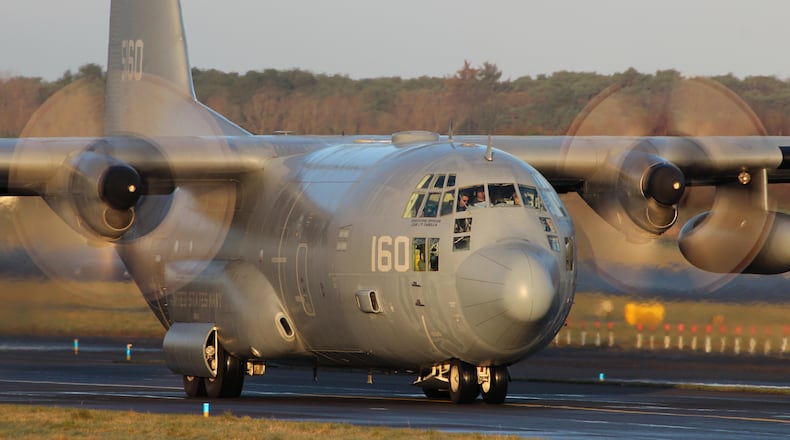Collins’ C-130 brakes, which feature the company’s proprietary “DURACARB” carbon heat sink material, can allow for 2,000 landings per overhaul compared to 250 landings per overhaul experienced by operators of the C-130′s current system, the business said.
“That lifespan is eight times longer, significantly reducing maintenance time and cost,” Collins said in a release. “In addition, the brakes are capable of handling higher energy than the aircraft’s existing equipment, which increases the safety margin when stopping heavily loaded C-130s.”
The boltless wheels feature a lock-ring design and higher fatigue life than the current C-130 system, also reducing maintenance times and costs for operators, Collins said further. The combined wheel and brake assembly contains 17 percent fewer parts than the C-130′s existing equipment, simplifying maintenance and service.
Last month, the U.S. Air Force announced it had selected Collins to design and develop a new wheel and carbon brake for the B-52 platform, retrofitting a fleet of 77 aircraft.
“At Collins Aerospace, we’re committed to keeping our warfighters safe while delivering the most efficient solutions to our customers to help keep their aircraft in the air. And that is exactly what our boltless wheels and carbon brakes will do for the U.S. Navy,” Ajay Mahajan, vice president, landing systems for Collins Aerospace, said in the company’s release.
Collins is a provider of wheels and brakes for military platforms, including the U.S. Air Force’s F-15, F-16, C-5, C-130 and Global Hawk fleets. Collins has also completed wheel and brake upgrades for several air forces around the globe.
In total, the company said it provides wheels and brakes for more than half of all active C-130s worldwide.
About the Author


